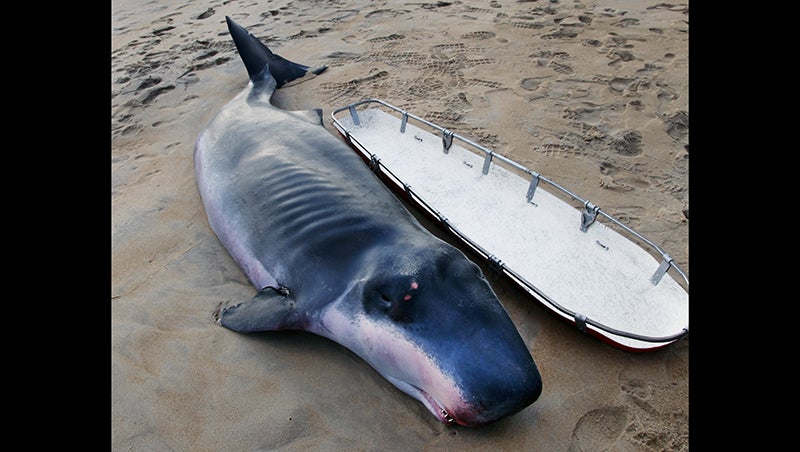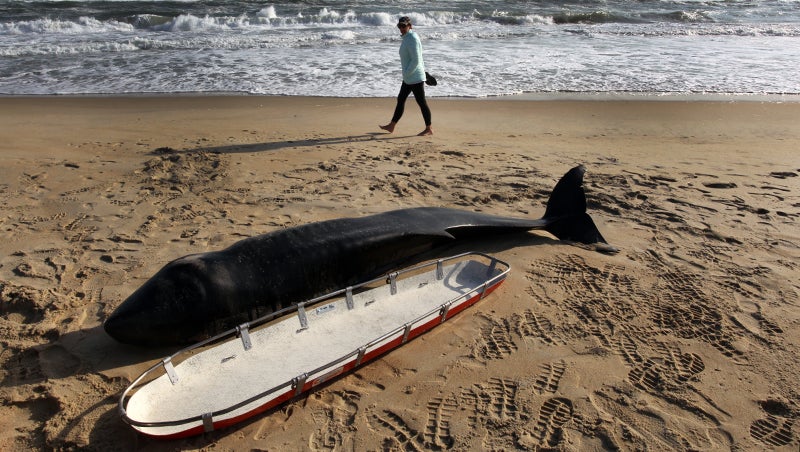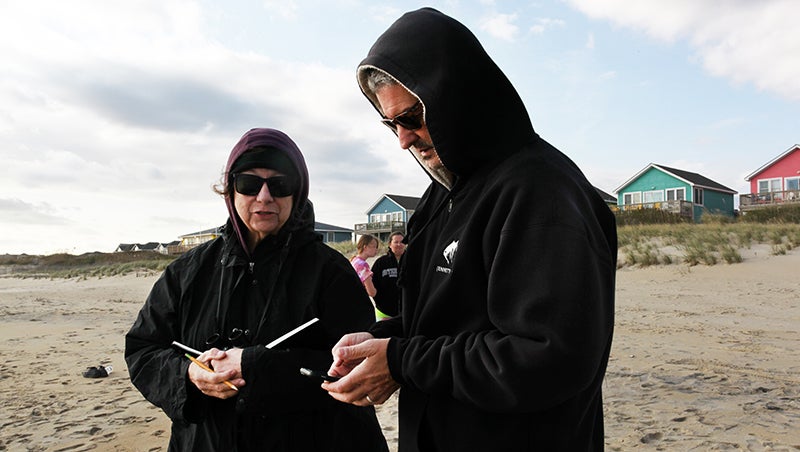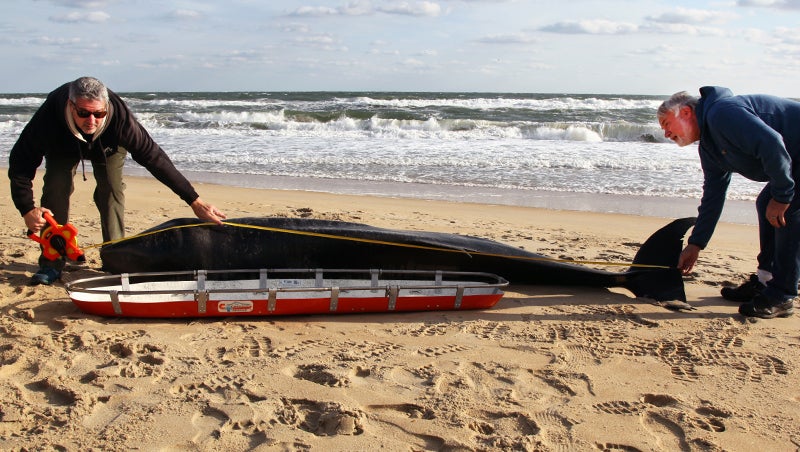Dead pygmy sperm whale removed from beach in Nags Head
Published 6:40 am Sunday, November 7, 2021
|
Getting your Trinity Audio player ready...
|
By Jennette’s Pier Staff
Strong northeast winds and heavy seas washed in a deceased pygmy sperm whale about a half mile north of Jennette’s Pier in Nags Head Wednesday morning. Vacationer Carolyn Duckworth of Richmond, Va. first spied the animal from the Blue Heron Motel where she was staying.
Duckworth reported the location of the whale to the front counter staff at Jennette’s, where several staff members are trained as first responders for the Outer Banks Marine Mammal Stranding Network.
Director Mike Remige jumped into action and headed over to the beach site, located just north of the pier, in a state vehicle assigned to the network.
He recorded the required data and photos before sending them in to Karen Clark, a senior network member and citizen science specialist for the N.C. Wildlife Commission.
The whale was ten and half feet long and had an estimated weight of 900 pounds. It looked severely emaciated, but showed no signs of injury.
Eventually, enough volunteers and bystanders arrived to help Remige, Duckworth and N.E.S.T. volunteer and retired veterinarian Roger Nichols load the animal onto a rescue litter and then into the back of the truck. It took eight people and two tries to get it loaded up in the 8-foot bed.
Once back at Jennette’s, Remige confirmed with state partners at N.C. Division of Marine Fisheries and the Center of Marine Science and Technology (CMAST) in Morehead City of their interest in the carcass. They sent Jill Sullivan to come get the whale so scientists and veterinary students could study it later.
Nichols, a volunteer with both OBX MMSN and Network for Endangered Sea Turtles, or N.E.S.T., asked everyone to watch out for the ink that these whales excrete from the anal slit near the bottom end of the animal when they were first rolling it onto the sled. He explained that pygmy sperm whales eat a lot of squid and they have glands that can absorb the ink. When these whales are threatened, they can shoot the ink out to make a cloud that can mask their escape.
To report a marine mammal stranding in Currituck, Dare and Hyde counties, call the OBX Stranding Response hotline at 252-455-9654. Within Cape Hatteras National Seashore, the Stranding Response hotline may also be called at 252-216-6892.










